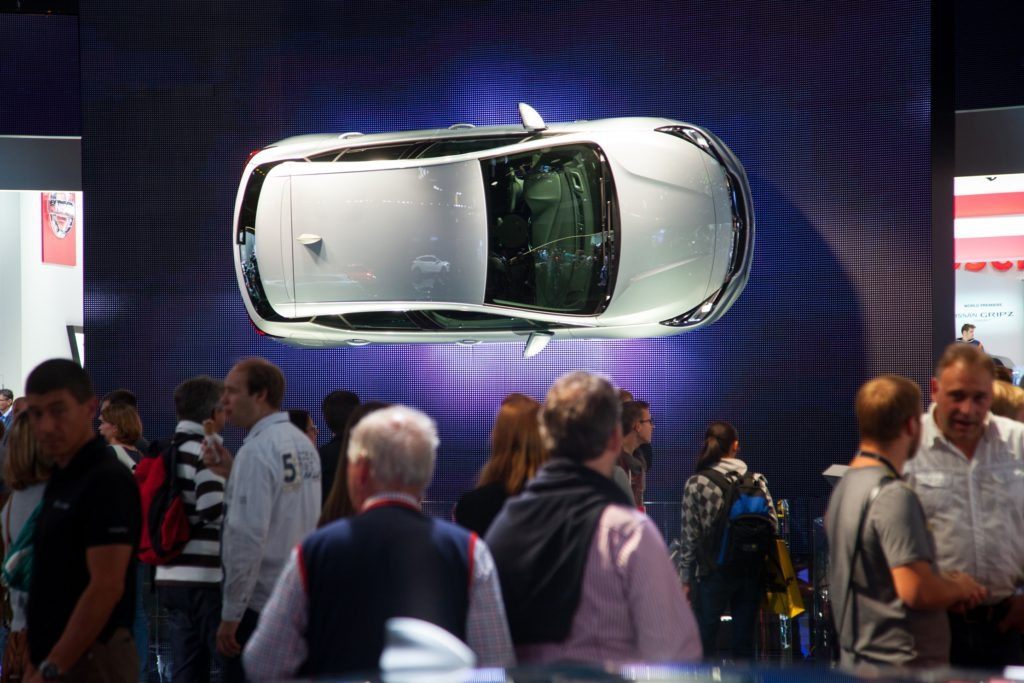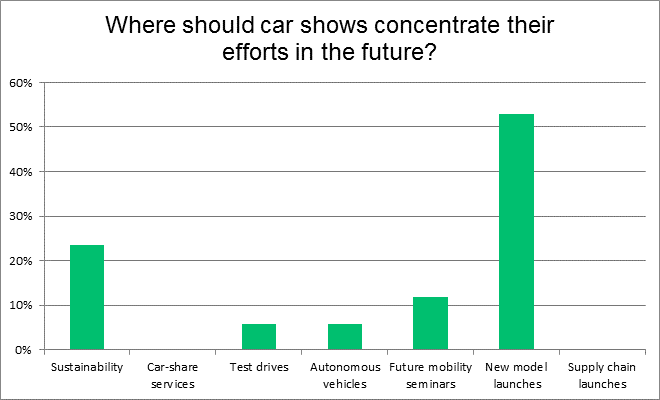Motor shows should focus on model launches and sustainability
20 September 2019

Motor shows should focus on model launches and sustainability
20 September 2019
The IAA Frankfurt opened with downsized exhibition space as numerous carmakers pulled out, a trend that has been seen at motor shows around the world. In the latest Autovista Group survey, more than half of respondents expressed the view that motor shows should continue to concentrate their efforts on new model launches. More than one in five respondents responded that the focus should be on highlighting sustainability in the automotive industry.

The Paris motor show, which alternates with Frankfurt on a biannual basis, suffered a similar fate in September 2018, with carmakers accounting for 40% of European sales missing from the event in the French capital. Volkswagen, Ford, Nissan, Fiat Chrysler Automobiles (FCA) and all its brands, Volvo, Mitsubishi and Mazda were all not represented at the show.
It stands to reason that motor shows need to be a platform for new model launches but as the automotive industry comes under increasing pressure to offer green mobility, shows also need to promote the sustainability of the sector. On this note, Germany was keen to highlight sustainable motoring, partially in order to avoid protests by climate change groups.
The third most popular response as to where motor shows should concentrate their efforts was future mobility seminars. More than one in 10 respondents see motor shows as having a future by promoting future mobility initiatives as the industry moves away from the traditional model of car ownership. Car-sharing services, specifically, did not gain any of the votes but respondents undoubtedly considered this under the broader umbrella of mobility.
Increasing interactivity
Autonomous vehicles and test drives each gained 6% of the votes. The Goodwood Festival of Speed in the UK is an example of the type of event that manufacturers are leaving traditional motor shows for in their droves. Events that pull in a crowd for which car launches are a simple side-line, or events where vehicle interactivity is available, are more critical when it comes to show planning than a static hall display. This also applies to autonomous vehicles, whereby the availability of driverless cars for test drives would help to allay consumer fears surrounding the technology.
At the time of writing, Automotive News Europe reports that ‘The Milano Monza Open Air show, which takes place in the Milan area next June, aims to attract automakers by offering affordable exhibition stands.’ Andrea Levy, president of the organising body, Salone dell’auto di Torino said it will be a ‘democratic show’ and that costs will be low for carmakers because the stands will be provided by the show itself.
Finally, supply chain launches did not gain any of the votes in this survey. Although suppliers are critical in the development of electric, connected and autonomous vehicles, this suggests the focus of motor shows should continue to be on the vehicles that feature new technology as opposed to the promotion of future technology in a less direct way.